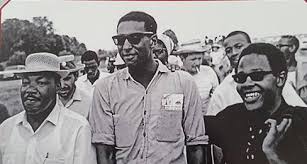Understanding this critical history has never been more important than it is in 2019 and beyond. Today, those who are genuinely concerned about the future of this planet (in every healthy way possible) are faced with unprecedented challenges. Any elementary study of human progress reveals that the most efficient way to defeat any challenge is to understand the history of how the challenge came about. The U.S. Black power movement of the 1960s and 70s generated significant victories that most of the population is still benefiting from today. Before the civil rights and Black power movements, the status quo for everything in this society was rich European (white) men. They were the only face in business, education, labor, politics, and popular culture. Everyone else was simply a caricature for their usage and pleasure. This is objective history that no one can factually dispute. And, this is at least part of the reason so many white men are so angry and frustrated today. The overwhelming majority of them are much to spineless and intellectually lazy to comprehend that the (very real) oppression they experience results from the capitalist system, not the people who are much more subjugated by the system than they are. For most of them, the only way they can wrap their minds around what's happening now is by seeing things within the narrow and subjective vision that something they earned is being taken away from them. What's actually happening is the civil rights and Black power movements simply opened up opportunities for people who previously had no options. Since the capitalist system functions all the time based on the perception of scarcity e.g. there's not enough (this is how they convince people to compete against each other instead of them), the limited opportunities that exist within this backward society for people to advance has been forced by these movements to open up some and this has led to a few less chances for white men who previously enjoyed full and unchallenged access, at least compared to everyone else in society.
2 Comments
Nabeeh Mustafa
2/4/2019 07:30:32 am
Excellent piece, and yes, a must read for serious students of organizational activity. Hopefully, I will not be too distracted by the thought that so much emphasis is placed on Malcolms statement, "by any means necessary," that it can be misconstrued to include means that are not moral which he did not represent. I love the perspective that was outlined in such a clear fashion. Kudos....
Reply
3/8/2020 09:11:57 pm
Asus already proved to be a good brand in technology and, the Asus MeMo Pad 8 tablet is proof of it. Priced at $ 149 , it’s economical enough without fading into functions.
Reply
Leave a Reply. |
Archives
March 2023
Categories |


 RSS Feed
RSS Feed
